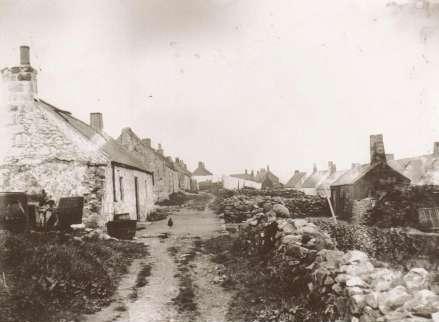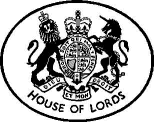
Salmon Fishing - A Political Introduction |
 The Lord Chancellor;
My Lords, this is an
appeal against certain Interlocutors pronounced in an action of
Declarator, raised at the instance of the Commissioners of Woods and
Forests and the Lord Advocate on behalf of Her Majesty, against the
Appellants, for the purpose of asserting the right of the Crown to the
salmon fishings in the sea opposite to the Appellant, Ernest Gammell’s
property of Portlethen, in the county of Kincardine.
The Lord Chancellor;
My Lords, this is an
appeal against certain Interlocutors pronounced in an action of
Declarator, raised at the instance of the Commissioners of Woods and
Forests and the Lord Advocate on behalf of Her Majesty, against the
Appellants, for the purpose of asserting the right of the Crown to the
salmon fishings in the sea opposite to the Appellant, Ernest Gammell’s
property of Portlethen, in the county of Kincardine.
The summons sets forth, that “all the salmon fishings
around the coast of Scotland, and in the navigable estuaries, bays and
rivers thereof, so far as the same have not been granted to any of our
subjects by charters or otherwise, belong to us jure coronae, and
form part of the hereditary revenues of our Crown in Scotland. That in
particular, the salmon fishings ex adverso of the estate of
Portlethen, in the county of Kincardine foresaid, belong to us jure
coronae, and are now under the management of the said Commissioners
of Woods, Forests, Land Revenues, Works and Buildings; that the
Defender, Ernest Gammell, is proprietor of the estate of Portlethen;
that the charters and other titles flowing from us and our Royal
predecessors in favour of the said Ernest Gammell or his authors,
contain no grant of salmon fishings, and he has no right or title to
salmon fishings ex adverso of the said estate of Portlethen, or
in any part of the seacoast adjoining thereto;” and the summons
concludes “Therefore it ought and should be found and declared by decree
of the Lords of our Council and Session, that the salmon fishings around
the sea coast of Scotland belong exclusively to us and our Royal
successors, and form part of the hereditary revenues of the Crown in
Scotland, so far as the said salmon fishings have not been expressly
granted to any of our subjects or vassals by charters or otherwise; and
it ought and should be found and declared by decree foresaid, that the
salmon fishings opposite to the said lands and estate of Portlethen, in
the county of Kincardine, belong exclusively to us and our Royal
successors, and the Defender, Ernest Gammell, the proprietor of the said
estate of Portlethen, and the other Defenders, as tenants, or claiming
right under him, have
 no right or title to fish for salmon, grilse, or
salmon trout ex adverso of the said lands and estate of
Portlethen, or in any part of the sea coast adjoining, by means of stake
nets or bag nets, or by net and coble, or in any other manner or way.
no right or title to fish for salmon, grilse, or
salmon trout ex adverso of the said lands and estate of
Portlethen, or in any part of the sea coast adjoining, by means of stake
nets or bag nets, or by net and coble, or in any other manner or way.
These were the findings and judgement of the House of Lords in the Appeal, Gammell et al. versus Her Majesty’s Commissioners of Woods, Forests, Land Revenues, Works and Buildings and the Lord Advocate of Scotland on the 28th March 1859.